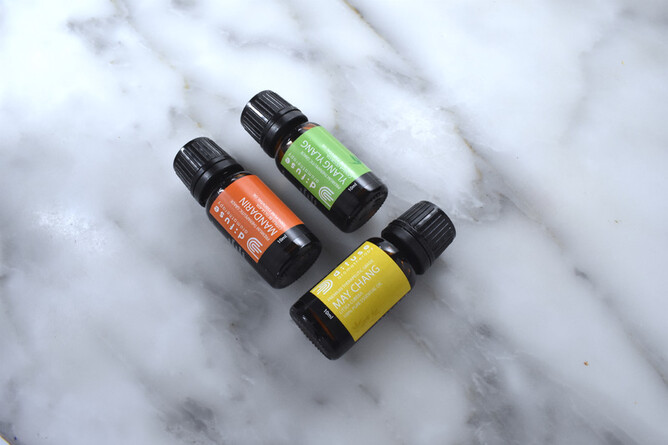What are essential oils?
Essential oils are aromatic compounds/particles that are extracted from plants. They can either come from the leaf, root, stems, bark or seeds of the plant and are usually extracted via steam distillation. For citrus oils such as lemon and grapefruit, it is the rind that is cold pressed for the oil.
It is important to know that 100% essential oils are very strong and potent. They require a large amount of plant matter. Arguably the most popular essential oil of all time, Lavender requires approximately 10kgs of lavender flowers to produce just 60g of essential oil. Other oils, such as rose oil, requires approximately 500,000 rose petals for just a 10ml essential oil bottle, hence the very expensive price tag. Due to its strength and concentration, many essential oils cannot be used directly on the skin, even more so if you have sensitive skin. It should be mixed and diluted, either with an oil if applied topically or added to water if used in a diffuser.
How do essential oils work?
Essential oils are used in two main ways: inhalation and topical application. Both methods allow our body to reap the benefits. Through topical application, essential oils can enter our bodies through dermal absorption; while inhaling the oils helps to stimulate the olfactory system - the part of the brain that deals with smell. This, in turn, affects the limbic system, which functions in regulating hormones, controlling emotions and regulating the autonomic nervous system (such as heart rate, blood pressure, breathing). In other words, by diffusing and inhaling essential oils you are essentially stimulating the body’s system in a positive way, e.g stimulating hormonal balance or digestion.
In terms of specific benefits, it is important to know that each plant and oil will have different chemical compounds, thus it will have different effects on the body and mind. For example, lavender is used by many in aiding sleep and stress, while citrus essential oils, such as lemon, are used by many for staying alert and focused. The effects of each oil will be different. You will find most oils will have antibacterial and insect repellent properties, which will benefit any home. To get the specific benefits of a specific essential oil, it is important to do read the descriptions of the oil you are buying, and do some research prior.
Now, the tricky bit: Knowing how and what essential oils to buy...
So, now you know the basics of what essential oils are. It is important to know that the quality of essential oils can vary. Make sure what you buy and use is 100% pure essential oil; if not, it may just be a bottle of nasty chemicals that is designed to smell nice. You want to make sure you have the right stuff, so that you’re able to reap the benefits of the oil. The easiest way to know is to carefully read the label. Companies who sell 100% essential oils, will normally state that on their label or box.
Here are some considerations:
Aroma and Purity: A good quality oil should capture the aroma and essence of the extracted plant. Essential oils can come from all over the world, and because of this, consumers should always ask and be aware of the origin of the oils and think whether that plant or fruit would thrive in that country’s climate. For example, eucalyptus thrives in Australia, thus you would expect a really good quality eucalyptus oil from there as it takes a large amount of eucalyptus leaf and stem to get a small amount of good quality oil. The oil should also smell like the natural plant or fruit. If it doesn’t, or if the different essential oils seem to share very similar scents, then it may possibly suggest the suboptimal quality of the oils. Because some oils are very expensive in 100% concentrations (Chamomile, Neroli, Rose etc.), you will find that some businesses will dilute them down with high quality carrier oils to make it more affordable for customers – as a $100 bottle of essential oil will not appeal to many.
Cost: When it comes to cost, it can be difficult. As previously mentioned, essential oils require a huge amount of plant matter to produce a small amount of oil; it usually doesn’t come cheap. However, it doesn’t mean that the more expensive the oil is, the better the quality. It all comes down to your judgement and a bit of research. If you search around stores or even online, you’ll be able to find out the average price range of the oil you’re after. The $3 oil from the dollar store could smell nice, but it won’t be the same as the $15 essential oil you are after. As the old saying goes, if it is too good to be true, it probably is.
Plant Name and Country of Origin: One of the key tips in finding a true bottle of essential oil is to know the exact botanical name (Latin Name) of the plant. Reliable brands will often provide you the botanical name of the plant. By knowing this, you know the exact species of the plant where the oil came from. A reliable source will also be able to provide you the origin of the essential oil.
Of course, there are many factors and considerations when buying essential oils. These are just a few main tips to help you when you are purchasing a bottle of essential oil. I can’t emphasize enough, that it is crucial to get a 100% essential oil to reap the beautiful natural rewards. Remember, essential oils are very good for general wellbeing, but they need to be used cautiously and correctly. Keep them away from children and be careful when using it - avoid contact with eyes and please consult a physician first if pregnant or nursing. If you have any questions or would like to have a chat, we are always just an email away :)
Please note when using any essential oils:
Keep out of reach of children. Any essential oil may cause skin sensitivity. If you are pregnant, nursing, taking medications or under a doctor’s care, consult your physician first. Avoid contact with eyes, inner ears, and sensitive areas. Happy diffusing!
D:FUSE NZ - New Zealand's largest range of aromatherapy diffusers!


